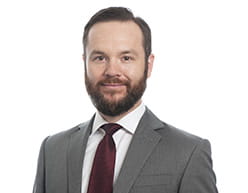This was an application made by Mrs Yurova for disclosure of privileged legal advice brought against joint trustees in bankruptcy (the Trustees) of her bankrupt husband, Mr Yurov.
Mr Yurov had been found liable to pay very substantial sums in High Court fraud proceedings brought against him and others by a Russia bank.
The Trustees were investigating Mr Yurov's affairs and had applied under s.366 of the Insolvency Act 1986 for an order that certain UK banks produce statements of Mrs Yurova's bank accounts. Mrs Yurova was joined as an third party to that s.366 application. As part of that application, the Trustees had relied on extracts of legal advice that they had obtained on the Russian law of matrimonial property. Mrs Yurova's position was that the Trustees had waived privilege in that advice and that she was entitled to specific disclosure
The primary questions before the court were: (a) whether privilege had been waived in the Russian law advice (b) whether in all the circumstances it was appropriate to make an order for specific disclosure in the s.366 application.
The decision
Whether privilege was waived
The court had to consider if there was an implied waiver of privilege because of how the Russian law advice had been deployed. Then it must assess what was the scope of that waiver to avoid the deployer of the material benefitting from "cherry picking". The Trustees had set out detailed extract of the Russian law advice in a witness statement used in support of the s.366 application (as well as including an extract in correspondence on the subject). This was sufficient for the material to have been deployed in court and therefore privilege had been waived.
With regards to the scope of the waiver, where a party waives privilege, that party also loses the right to assert privilege in relation to other material relating to the same subject matter. However, a derogation from privilege should only go as far as necessary to ensure fairness. The correct approach was to first identify the 'transaction' in which the disclosure had been made. The only transaction in which the Trustees had made a disclosure was the Russian law of matrimonial property insofar as it relates to monies held in bank accounts of spouses. Any other advice on Russian law matters that may have been taken by the Trustees was not waived.
Whether to make an order for disclosure
Given that there is no automatic right to disclose in an insolvency application, the court first assessed all the circumstances of the case to determine whether to order the additional disclosure of privileged material. The relevant circumstances included the nature of the application, the relevance of foreign law, the need to deal with cases justly, the status of the Trustees as officeholders and issues of proportionality. The court held that the circumstances identified and the overriding objective in the CPR did justify ordering specific disclosure. The Trustees had to provide the full advice on the subject matter, including any instructions given and emails to/from the Russian law advisor concerning the instructions or the advice.
The practical implications
It is unusual for there to be disclosure application against an office holder, made in response to an inquiry by that office holder for documents. It is, however, not unusual for an insolvency application to involve issues of foreign law. Relying on privileged legal advice within a letter, witness statement or other court document carries with it an obvious risk of inadvertent waiver of privilege.
The safer approach in such circumstances is to seek permission to adduce expert evidence pursuant to CPR 35 on matters of foreign law. That avoids questions of waiver of privilege and is likely to result in that evidence being given greater weight by the court.
Incidentally, the court suggested that Mrs Yurova should have been regarded as a respondent rather than a third party for the purposes of such applications.
Case details:
- Court: Insolvency and Companies List, Chancery Division
- Judge: Deputy ICC Judge Parfitt
- Date: 9 August 2022
